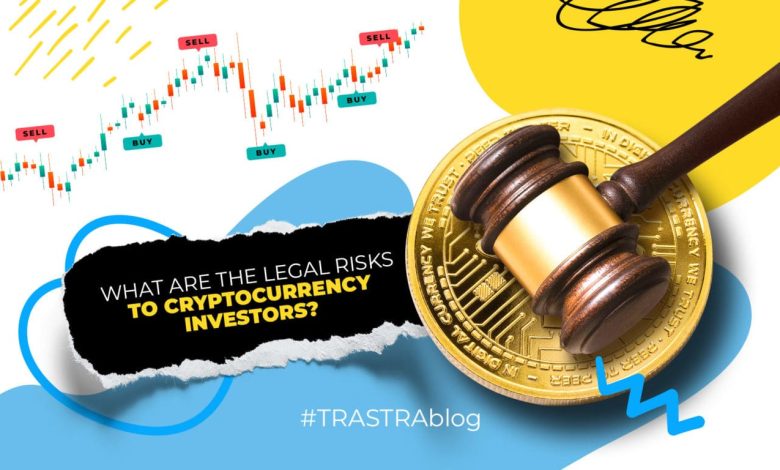Regulatory Risks for Crypto Investors

- Understanding the regulatory landscape for cryptocurrencies
- Key regulatory challenges facing crypto investors
- Impact of changing regulations on the crypto market
- Navigating legal uncertainties in the world of digital assets
- Regulatory risks and compliance considerations for crypto investors
- How government policies can affect the value of cryptocurrencies
Understanding the regulatory landscape for cryptocurrencies
Understanding the regulatory landscape for cryptocurrencies is crucial for investors looking to navigate the complex world of digital assets. Governments around the world are still grappling with how to regulate cryptocurrencies, leading to a patchwork of laws and regulations that can be difficult to interpret.
One of the main concerns for investors is the lack of uniformity in regulations across different jurisdictions. Some countries have embraced cryptocurrencies, while others have banned them outright. This lack of consistency can create uncertainty for investors and make it challenging to assess the legal risks associated with investing in cryptocurrencies.
Another key issue is the evolving nature of cryptocurrency regulations. As governments and regulatory bodies continue to grapple with how to classify and regulate cryptocurrencies, the regulatory landscape is constantly changing. This can make it difficult for investors to stay up to date on the latest regulations and ensure compliance with the law.
Investors should also be aware of the potential for regulatory crackdowns in the cryptocurrency space. Governments have shown a willingness to crack down on cryptocurrencies in the past, which can lead to significant losses for investors. Understanding the regulatory risks associated with cryptocurrencies is essential for investors looking to protect their investments.
Key regulatory challenges facing crypto investors
Investing in cryptocurrencies can be lucrative, but it also comes with its fair share of regulatory challenges that investors need to be aware of. Some of the key regulatory challenges facing crypto investors include:
- Uncertainty: The regulatory landscape surrounding cryptocurrencies is constantly evolving, leading to uncertainty for investors. Regulations can vary significantly from one country to another, making it difficult to navigate the legal framework.
- Compliance: Ensuring compliance with existing regulations can be a daunting task for crypto investors. Failure to comply with regulatory requirements can result in hefty fines or even legal action.
- Security: The lack of regulatory oversight in the crypto market can expose investors to security risks, such as fraud and hacking. Without proper regulations in place, investors may find it challenging to protect their investments.
- Tax implications: Cryptocurrency transactions are subject to tax laws in many jurisdictions. Understanding the tax implications of investing in cryptocurrencies can be complex and may require the assistance of a tax professional.
- Market manipulation: The unregulated nature of the crypto market makes it vulnerable to market manipulation. Investors may be at risk of falling victim to pump-and-dump schemes or other fraudulent activities.
Impact of changing regulations on the crypto market
The impact of changing regulations on the cryptocurrency market is a significant concern for investors. Regulatory changes can have a profound effect on the value and stability of cryptocurrencies. As governments around the world continue to grapple with how to regulate this emerging asset class, investors must stay informed and adapt to new rules and guidelines.
One of the main impacts of changing regulations is increased uncertainty. When regulations are in flux, it can be challenging for investors to predict how new rules will affect the market. This uncertainty can lead to increased volatility as investors react to changing regulatory environments. Additionally, regulatory changes can also impact the liquidity of cryptocurrencies, making it more difficult for investors to buy and sell their assets.
Another impact of changing regulations is the potential for increased compliance costs. As regulators impose new rules on the cryptocurrency market, investors may be required to comply with additional reporting requirements or face penalties for non-compliance. These compliance costs can eat into investors’ profits and make it more challenging to navigate the regulatory landscape.
Furthermore, changing regulations can also impact the reputation of cryptocurrencies. If governments crack down on the use of cryptocurrencies for illicit activities or impose strict regulations on exchanges, it can tarnish the reputation of the entire market. This can lead to decreased trust from investors and the general public, ultimately affecting the value of cryptocurrencies.
In conclusion, the impact of changing regulations on the cryptocurrency market is a complex and multifaceted issue. Investors must stay informed, adapt to new rules, and be prepared for increased uncertainty, compliance costs, and potential reputational damage. By staying vigilant and proactive, investors can navigate the regulatory risks and continue to participate in this dynamic market.
Navigating legal uncertainties in the world of digital assets
Navigating the legal uncertainties in the world of digital assets can be a daunting task for crypto investors. With regulations varying from country to country, it is crucial to stay informed and compliant to avoid potential legal pitfalls.
One of the key challenges for investors is the lack of clarity surrounding the classification of digital assets. Different jurisdictions may categorize cryptocurrencies differently, leading to confusion and uncertainty. This ambiguity can make it difficult for investors to understand their rights and obligations when trading digital assets.
Additionally, the evolving nature of regulations in the crypto space adds another layer of complexity. Governments around the world are still grappling with how to regulate digital assets effectively, leading to frequent changes in legislation. This dynamic environment can make it challenging for investors to keep up with the latest legal requirements.
To navigate these uncertainties, investors should seek legal counsel from professionals with expertise in digital asset regulations. By staying informed and seeking guidance from experts, investors can mitigate their legal risks and ensure compliance with relevant laws. It is essential to conduct thorough due diligence and stay updated on regulatory developments to protect investments in the ever-changing landscape of digital assets.
Regulatory risks and compliance considerations for crypto investors
When it comes to investing in cryptocurrencies, there are several regulatory risks and compliance considerations that investors need to be aware of. It is important to understand the legal landscape surrounding cryptocurrencies in order to mitigate potential risks and ensure compliance with relevant laws and regulations.
One of the key regulatory risks for crypto investors is the uncertainty surrounding the legal status of cryptocurrencies. Different countries have taken varying approaches to regulating cryptocurrencies, with some embracing them as legitimate forms of currency, while others have imposed strict regulations or outright bans. This lack of uniformity can create challenges for investors, as they may be subject to different rules depending on their location.
Another regulatory risk for crypto investors is the potential for regulatory crackdowns or enforcement actions. Government agencies around the world have increasingly been scrutinizing the cryptocurrency market, with a particular focus on issues such as money laundering, fraud, and tax evasion. Investors who are found to be in violation of these laws could face significant penalties, including fines or even criminal charges.
Compliance considerations are also important for crypto investors to keep in mind. In order to stay on the right side of the law, investors should be diligent about following know-your-customer (KYC) and anti-money laundering (AML) regulations. This may involve verifying the identities of their customers, reporting suspicious transactions, and keeping detailed records of their activities.
Overall, regulatory risks and compliance considerations are important factors for crypto investors to consider. By staying informed about the legal landscape surrounding cryptocurrencies and taking steps to ensure compliance with relevant laws and regulations, investors can help protect themselves from potential legal issues and safeguard their investments.
How government policies can affect the value of cryptocurrencies
Government policies play a crucial role in shaping the value of cryptocurrencies. **Regulations** imposed by governments can have a significant impact on the **price** and **popularity** of digital currencies. Here are some ways in which government policies can influence the **value** of cryptocurrencies:
1. **Legal Status**: The **legal** status of cryptocurrencies can vary from country to country. Some governments may **ban** or restrict the use of digital currencies, leading to a decrease in their **value**. On the other hand, **regulations** that recognize and support cryptocurrencies can boost their **value**.
2. **Taxation**: Government **policies** regarding the taxation of cryptocurrencies can also affect their **value**. **Higher** taxes on **crypto** transactions may discourage **investors** and traders, leading to a drop in **prices**. Conversely, **tax** incentives for **crypto** users can increase demand and drive up **values**.
3. **Regulatory** Clarity: Uncertainty surrounding **regulations** can create **volatility** in the **crypto** market. Clear and **consistent** **regulatory** frameworks can provide **stability** and **confidence** to **investors**, ultimately supporting the **value** of cryptocurrencies.
4. **Security** Measures: Government **policies** aimed at enhancing the **security** of **crypto** exchanges and wallets can improve **trust** in the **market**. This **trust** can attract more **investors** and **institutional** **players**, leading to an increase in the **value** of cryptocurrencies.
In conclusion, government **policies** play a crucial role in shaping the **value** of cryptocurrencies. **Investors** should stay informed about **regulatory** developments and consider the potential **impact** of **government** actions on their **crypto** holdings.
